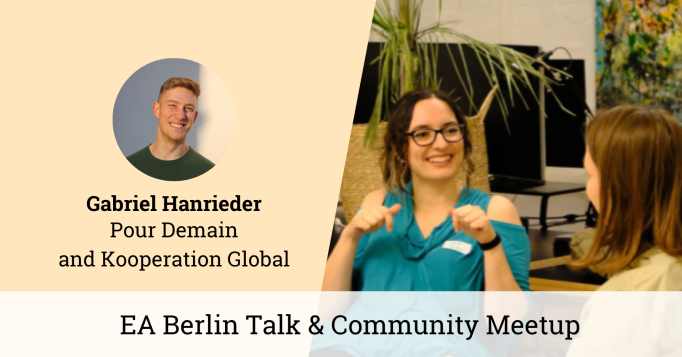At this meetup, we'll have Gabriel Hanrieder working for Pour Demain and Kooperation Global . He'll share his Insights from Advocacy for Effective Programs in Global Development:
Since decades, governments from high-income countries have been running programs to eliminate poverty, hunger, and preventable diseases. In order for those public institutions to become more effective and have the best impact with their work, it is essential that they make use of the best available evidence on the most impactful programs. But amidst vastly differing political interests, how do we make sure this is the case?
At Kooperation Global, we are trying to answer this question by advocating for evidence-based and impact-oriented development policy in Germany and the European Union.Some of the questions I will touch upon in the talk include:
- Is it still highly impactful to work in the field of Global Health & Wellbeing?
- Why and how does policy advocacy pose an impactful way in trying to do good?
- How evidence-based is (German) development policy and how do we strive to improve it?
Schedule for the evening
19:00 Arrivals
19:15 Short intro for people new to EA
19:30 Talk
20:15 Open discussion and networking
We would be quite happy if you join us for the talk, but feel free to skip it and join us directly for the community meetup at 20:15.
New people welcome 👋
We're always happy to welcome new people and we think this event is a great start to learn more about EA! If you’re new, I (Martin) am happy to introduce you to the community – just approach me at the event.
If you'd like to learn more about EA before attending the event, have a look at these resources to get a first impression:
www.effectivealtruism.org (EA philosophy & community)
www.80000hours.org (impactful careers)
Any questions, feedback or suggestions? Interested in (co-)organizing your own events? Just reach out, we are happy to hear from you: info@ea-berlin.org! For anonymous feedback, feel free to use this form.
Warmly,
Martin & the EA Berlin team




